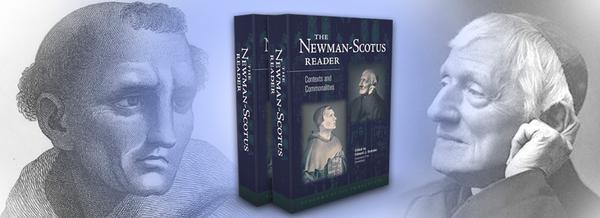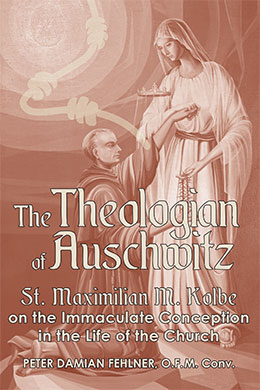 Fr. Peter Damian Fehlner‘s groundbreaking originality in discovering commonalities between the thought of Bl. John Duns Scotus and St. John Henry Newman is the lead to an essay by Prof. William A. Frank from the University of Dallas which was published in the American Catholic Philosophical Quarterly, December 24, 2019, edition. It is included in a collection of scholarly articles on both Duns Scotus and Newman.
Fr. Peter Damian Fehlner‘s groundbreaking originality in discovering commonalities between the thought of Bl. John Duns Scotus and St. John Henry Newman is the lead to an essay by Prof. William A. Frank from the University of Dallas which was published in the American Catholic Philosophical Quarterly, December 24, 2019, edition. It is included in a collection of scholarly articles on both Duns Scotus and Newman.
Introduction
Philosophical work on the relation between the thought of John Henry Newman and John Duns Scotus is not commonplace in Scotus studies, nor in Newman studies, for that matter. There are in Newman’s vast corpus of books, notes, sermons, letters, novels, and poetry, some though very few, direct references to Duns Scotus and his thought. It is likely he had little acquaintance with the Subtle Doctor’s printed works; most of his familiarity seems to have come from secondary sources in the contemporary theology of his day.
Nonetheless there are found in Newman and Scotus a range of affinities in philosophical approaches and sensibilities that run deep in both thinkers. Many of these have been identified and discussed in a recent book entitled The Newman-Scotus Reader.[1] Contributions to the book that lean toward Scotus studies are Timothy Noone, Olivier Boulnois, Mary Beth Ingham, and Cyril O’Regan. Those who particularly represent the Newman side of the conversation are John T. Ford, Geoffrey Rowell, and Robert C. Christie. There are also two authors who give more or less equal voice to both Scotus and Newman in their contributions. Patricia Hutchison reflects on the potential in Scotus and Newman for the advancement of Catholic higher education in the twenty-first century. And Peter Damian Fehlner, with his remarkable capacity for integration, introduces teachings on Scotus, Bonaventure, and Newman, ranging widely over such topics as the Immaculate Conception and the Incarnation, theological method, faith and reason, the natural and supernatural, metaphysics, anthropology and epistemology. The editor, Edward Ondrako, offers, from the perspective of Scotus and Newman, critiques of Hegel and Kant, as well as an insightful appreciation of Gerard Manley Hopkin’s poetry. As a whole, the book draws out a number of philosophically interesting commonalities in the thought of Scotus and Newman. I shall not attempt to trace any of the commonalities woven through the rich complex of ideas in Reader. Instead, I propose to discuss a feature common to Scotus and Newman that was not the focus of any direct attention in Ondrako’s Reader.
[1] The Newman-Scotus Reader: Contexts and Commonalities, ed. Edward J. Ondrako, OFM Conv (New Bedford MA: Academy of the Immaculate, 2015, rpt. 2019).
__________________________________________
Fr. Edward J. Ondrako, OFM Conventual
Research Fellow Pontifical Faculty of St. Bonaventure, Rome
Visiting Scholar, McGrath Institute for Church Life
University of Notre Dame
Easter Sunday, 2019
MORE (Click image for more information):

